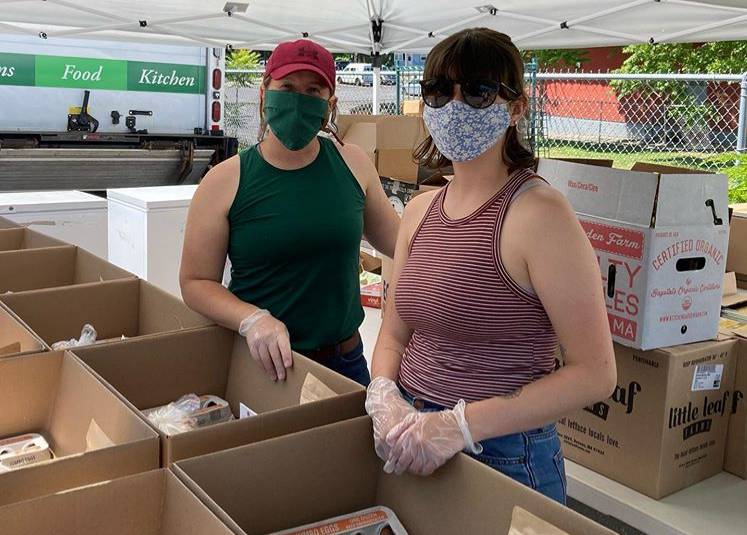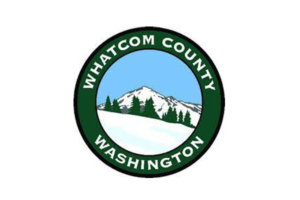Sometimes the perfect storm for innovation is a crisis (or global pandemic) that pushes organizations further into their mission. Or it creates an opportunity to try something that under normal conditions would seem outrageous, but suddenly seems like the only option to meet the real-time needs of the community.
We have been catching up with dozens of our past clients and food system coworkers to learn what is happening on the ground and how they are adapting to the changing landscape. Amid the chaos and heartbreak, we are hearing encouraging stories of how organizations have shifted their models to quickly respond to supply chain disruptions, hunger relief and consumer demand for local products.
We’ll give you a taste of what we’re hearing as we continue to compile and share out responses. (You can chime in too by answering these 5 questions.) These three examples are by no means exhaustive in representing the innovation we’re seeing, but what stands out is the willingness of these trailblazers to look out for those most vulnerable, and then do whatever is necessary to help those around them survive.
LAWRENCE RESTAURANT ASSOCIATION, Lawrence, KS
Three years ago, Chef Rick Martin (not coincidentally, our own Eileen Horn’s husband) started the Lawrence Restaurant Association, built on creating a collaborative culture in an industry that is better known for being cut-throat. Already, their accomplishments include a city-wide recycling program and a safety alliance to help keep bar patrons safe. They were in the midst of establishing a crisis fund for industry workers when COVID-19 hit.
Immediately, the Association used the crisis fund framework to create the Hospitality Workers Relief Fund. It has already served hundreds of laid-off workers. And then the City asked, “Hey, can you feed the public school children?”
The Lawrence Public School District had furloughed its food workers because many felt vulnerable to the virus. Yet many families relied on school lunches to mitigate food insecurity. The City called on the Chamber, the Chamber called on Rick, they all met with the school superintendent, and in three days they had a plan. The City and County reallocated National School Lunch Program funds to about 15 restaurants that eagerly agreed to participate.
The restaurants prepared breakfast and lunch to serve 1,300 students each day for the remaining school year. Many students are already asking if they will make lunches again next year. The impact goes beyond providing nutrition. These restaurants found a new way to promote themselves by demonstrating their support and investment in the community. As a result, the Association anticipates that more residents will patronize these restaurants and hopes that more restaurants will join them as they continue to innovate, lead and support the hospitality industry.
THE FOOD MILL, Columbus, GA
When Olivia Amos started Bare Roots Cafe, a farm-to-table restaurant and catering business in Columbus, Georgia, she never imagined the dramatic shift that would occur due to the COVID-19 crisis.
A few weeks into the stay at home order, Olivia realized that catering as she knew it would be changed for the foreseeable future — not a 6-8 week pause with business resuming as usual. It was apparent that a new business model was needed in order to survive.
Bare Roots was already selling prepared meals, so it was possible to expand on this model and implement The Food Mill, an idea that had been on the back burner. The concept grew when a local law firm established a nonprofit, BWP Cares, to feed and support healthcare workers. The program not only supported healthcare heroes but also helped local independent restaurants keep their doors open by purchasing the meals from them. Other businesses, local farms, and food distributors followed BWP’s lead by donating food and funds. As a result, Bare Roots provided close to 1,000 free meals.
Seeing what was possible, the vision for The Food Mill was solidified to become a multifunctional food farmacy to help eliminate barriers and solve issues that lead to food insecurity in Columbus, GA. The North Highland Community of Bibb City, which has one of the highest rates of food insecurity in Columbus, is a specific focus area for The Food Mill.
The needs highlighted by COVID have sped up the timeline to complete this transition. The Food Mill will offer Healing Roots Meals, a brand of medically-tailored meals, in partnership with MercyMed clinic and Feeding the Valley food bank, to give patients with diet-related diseases access to proper nutrition for their specific illness. These meals will also be available for the general public to purchase, as will nutritional counseling and dietitian services, to help subsidize meals for those who cannot afford them.
Olivia has other plans for The Food Mill which will only become more necessary as the restaurant landscape continues to change and the needs in the community continue to rise.
WORCESTER REGIONAL FOOD HUB, Worcester, MA
Shon Rainford, director of the Worcester Regional Food Hub, could see what was coming when he visited the Worcester Public Market. It was a brand-new hotspot, open for just six weeks. It went from being packed every day to almost empty as soon as the pandemic hit. Within five days, Shon had pivoted from a wholesale produce food hub to curbside pickup at the church where he operates the other of the food hub’s two programs, a shared kitchen.
Within a few weeks, sales for the curbside program scaled to almost ten times the first week’s revenue. A new web store had to be built because the existing online ordering platform was quickly overwhelmed. In the month of May alone, the food hub generated as much revenue as it had during the entire first half of the prior year, and it is still going strong.
While Shon is thrilled with the program’s success, it’s not because he’s receiving big checks. It’s because he’s writing them. He buys from local farmers, fisheries (particularly hard hit by restaurant closures), and from his shared kitchen members that have a wholesale permit. And the food is going where it is needed. In addition to curbside, customers include two environmental and food justice organizations that run mobile and farmers markets that provide access to healthy, affordable, local food. For all these reasons Shon is exploring ways to continue and even expand the program.
The shared kitchen, on the other hand, initially dropped to zero. Slowly, it is picking up again, due in part to products from kitchen members being featured on the web store for curbside pickup. But Shon sees the shared kitchen as a big part of WRFH’s future. With the grim predictions that 85% of independent restaurants could close within the next year, the shared kitchen could become increasingly important as a ghost kitchen, for pop-up events, etc. As Shon sees it, people are still going to want to eat away from home, and with all of the displaced culinary talent, there could be a surge in creativity offering new types of dining experiences.
Like many food businesses right now, much is unknown. Yet Shon has lots of ideas, and while they are taking shape he’s busy helping community members who really need it and solving the capacity puzzle in the warehouse’s overstuffed coolers and freezer. And now it’s summer, so, naturally, he added ice cream to the list for curbside.
Photo courtesy of Worcester Regional Food Hub



